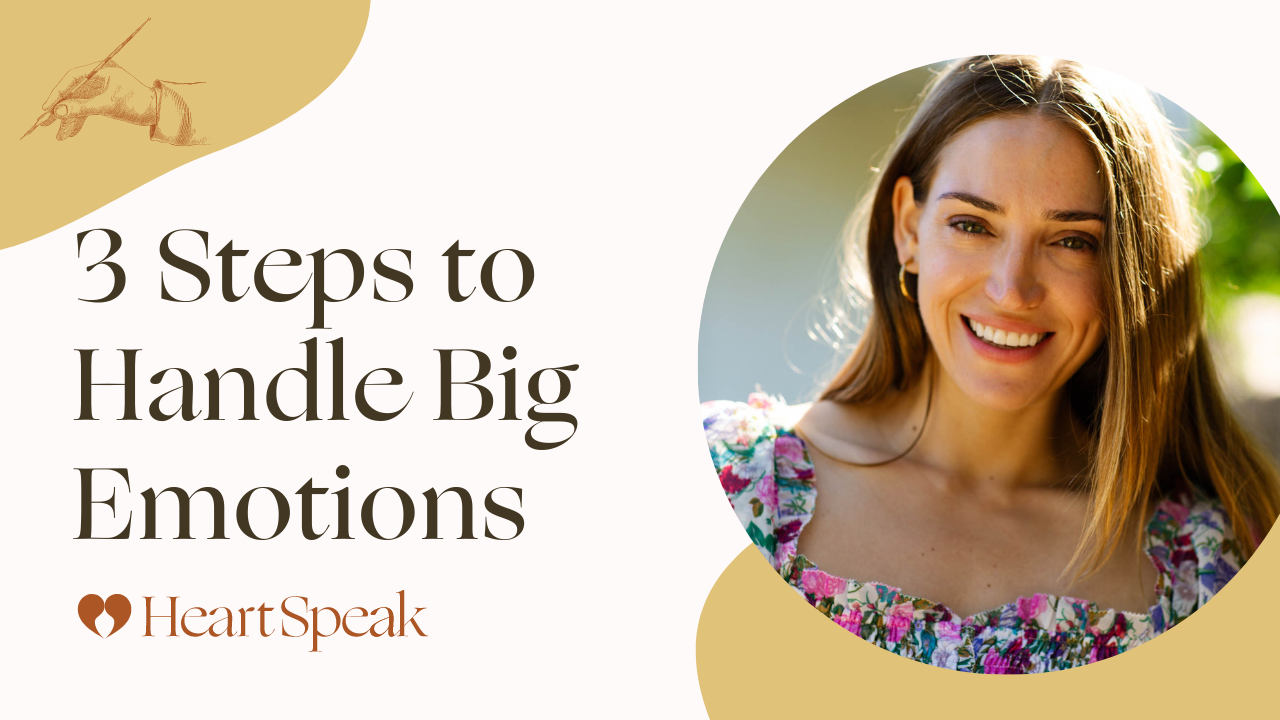3 Steps to Handle Big Emotions
Did you know a burst of anger only lasts 90 seconds?
Anger is just a group of cells in our brain that get triggered. We have the power to choose to act out or not (and it only takes 90 seconds for that cell circuit to settle down).
Instead of giving our "scorched earth" emotion a pass, choose to practice managing your big emotions.
Here are three tips to help you work through your anger.
1. Name it.
Literally speak that internal fire.
Describe what you feel out loud and the sensations you feel in a stream of consciousness.
This technique works well for three reasons — It's an action that channels that explosive energy, it prevents you from lashing out at the people around you, and it gets you to own the feelings and sensations happening in your body.
2. Feelings arise from unmet needs.
What do you need right now?
What is your unmet need that's generated the feeling coming up in you?
Do you need a hug and a good cry? Do you need to eat something? Do you need to slow down and take a nap?
Becoming aware of your needs is a process of asking yourself these questions. It's also a way to show ourselves love and care and demonstrate that we value our well-being.
3. What do you really mean to say?
What vulnerability lies underneath your anger?
Our anger is a secondary emotion. Anger is often just a form of protection.
For example, if my partner and I are tense with each other and decide to throw a dig at one another, we don't let it slide. We've practiced asking each other: Hold up. What do you really want or mean to say?
When we look for the vulnerability underneath our anger or frustration, we sidestep those negativity traps that waste energy and time.
But, it's easier said than done.
Because being vulnerable requires courage.
Learning to self-regulate our emotions takes practice.
The next time big, heavy emotions threaten to overwhelm you, in those 90 seconds, are you willing to try something new?

